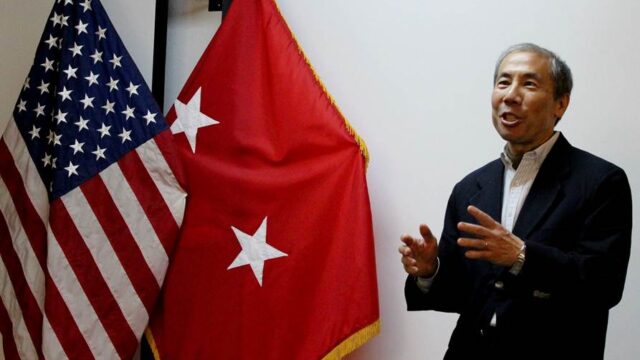
A Dedication to Service: Ambassador Donald Yamamoto
Americans who choose to enter the United States Foreign Service do not take the decision lightly.
These professional diplomats spend most of their careers abroad, serving two-to-three years at a post in a foreign nation before moving to another.
Representing the United States overseas is a rewarding, demanding, and sometimes dangerous job. Diplomacy requires resilience. Our nation’s diplomats, such as Ambassador Donald Yamamoto, take on these challenges in service of the United States and the American people.
“What Country Would Do That?”
Donald Yamamoto was born in Seattle, Washington, to parents of Japanese ancestry in 1953.
His father had been a Japanese Imperial soldier during WWII and the sole survivor of his family. A scholarship recipient, he came to the United States to study and became a United States citizen.
His mother was Nisei, second generation, born in the United States after her Issei parents immigrated from Japan. Right before the war began, Yamamoto’s maternal grandparents had sent his mother to Japan to study its culture, and she was unable to return to the United States when the war broke out.
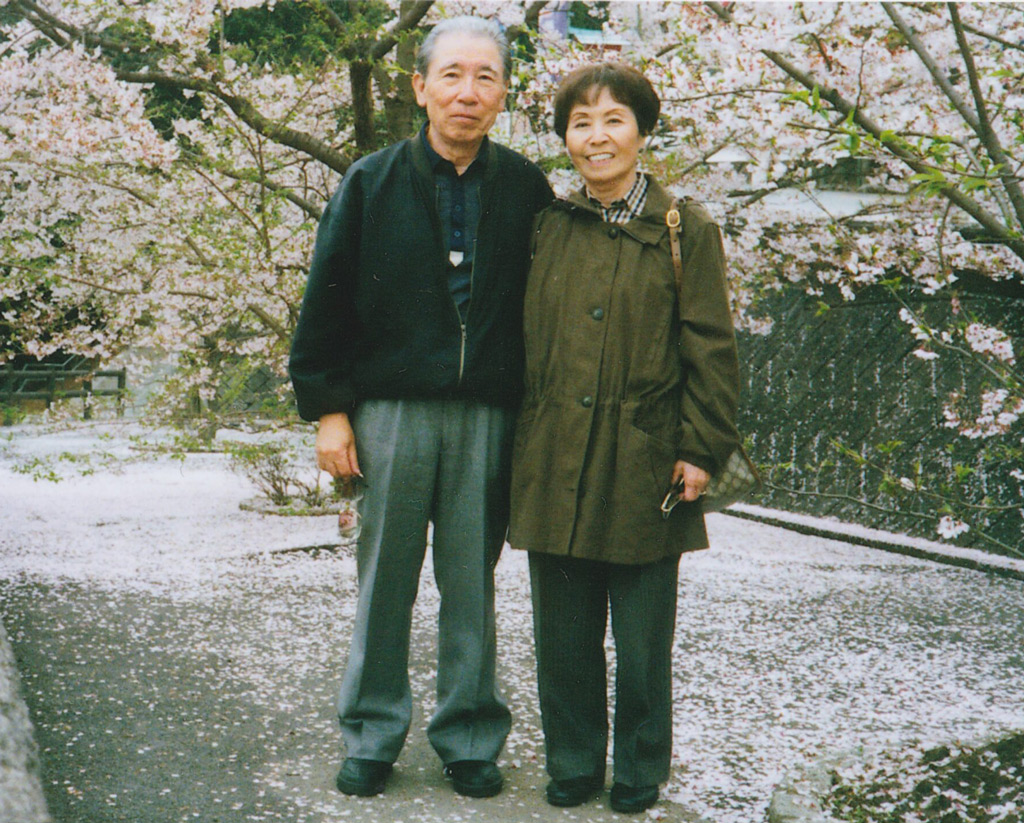
Back home, federal authorities sent her family to an internment camp under Executive Order 9066. President Franklin Roosevelt issued the order permitting the military to “relocate” anyone the government deemed a threat to national security. More than 100,000 Americans of Japanese ancestry were sent to these camps between 1942 and 1945. Despite this attack on their civil liberties, when the U.S. Government allowed Nisei men to enlist, two of Yamamoto’s uncles did so, serving in the 442nd Infantry with distinction.
His mother returned to the United States after suffering hardships in Japan. Still, despite what she, her family, and Yamamoto’s father had been through, they felt a sense of pride, patriotism, and gratitude to the United States.
Donald Yamamoto relates that his father was deeply impressed that the United States had made a scholarship available to a former Japanese Imperial soldier who had actively fought against the nation only a few years earlier. Telling the story, Yamamoto asks, “What country would do that?”
From an early age, his parents instilled resilience and the need to give back to the country they believed had given them and their children boundless opportunities.
“Serving in the United States Department of State is a great thing- not only because it’s service to the people of the United States, but as a way to say thank you for everything that they have done for my family.”
– Ambassador Donald Yamamoto
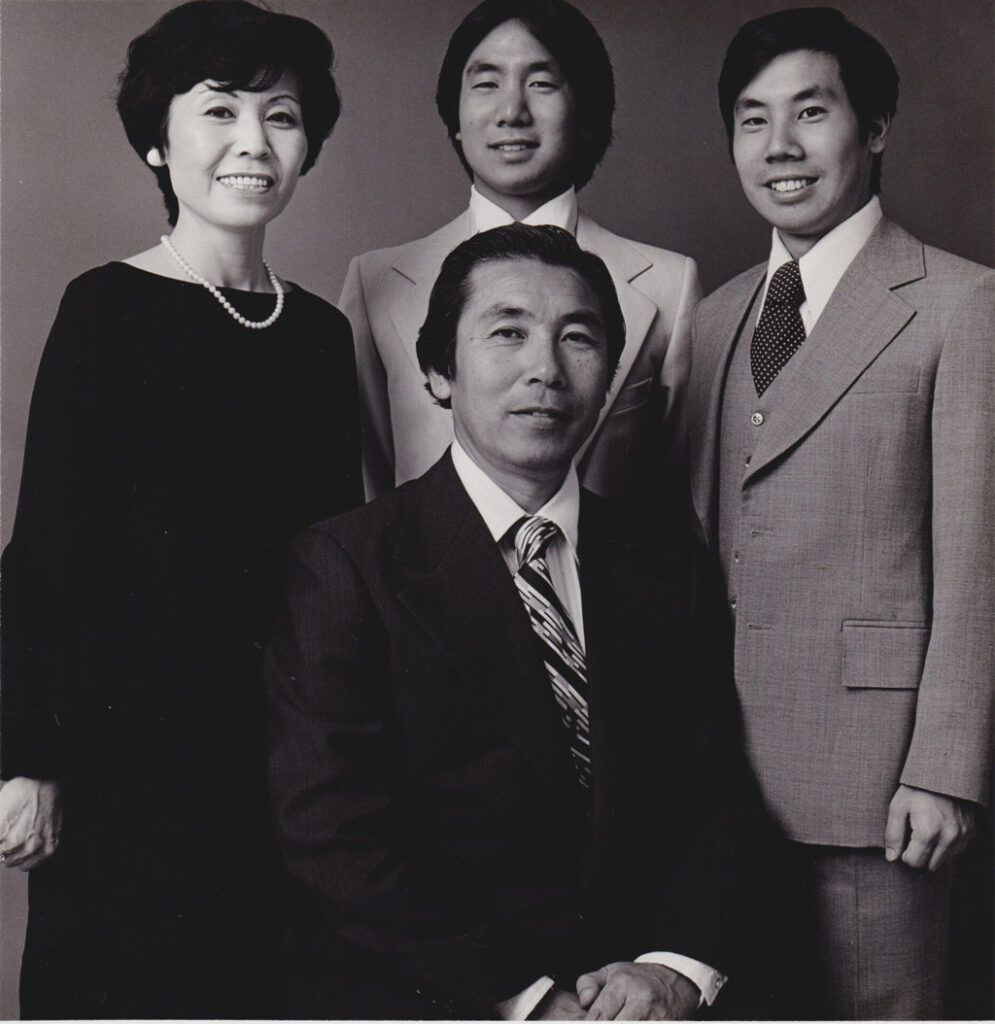
Choosing to serve in the United States Foreign Service
After growing up in New York City, Yamamoto continued his education, enrolling in Columbia College for his undergraduate studies. While at Columbia, Yamamoto was exposed to many well-known foreign policy experts and met former American diplomats teaching at Columbia.
Hearing their experiences coupled with a strong desire to give back to the American people and the nation, Yamamoto entered the United States Foreign Service in 1980.
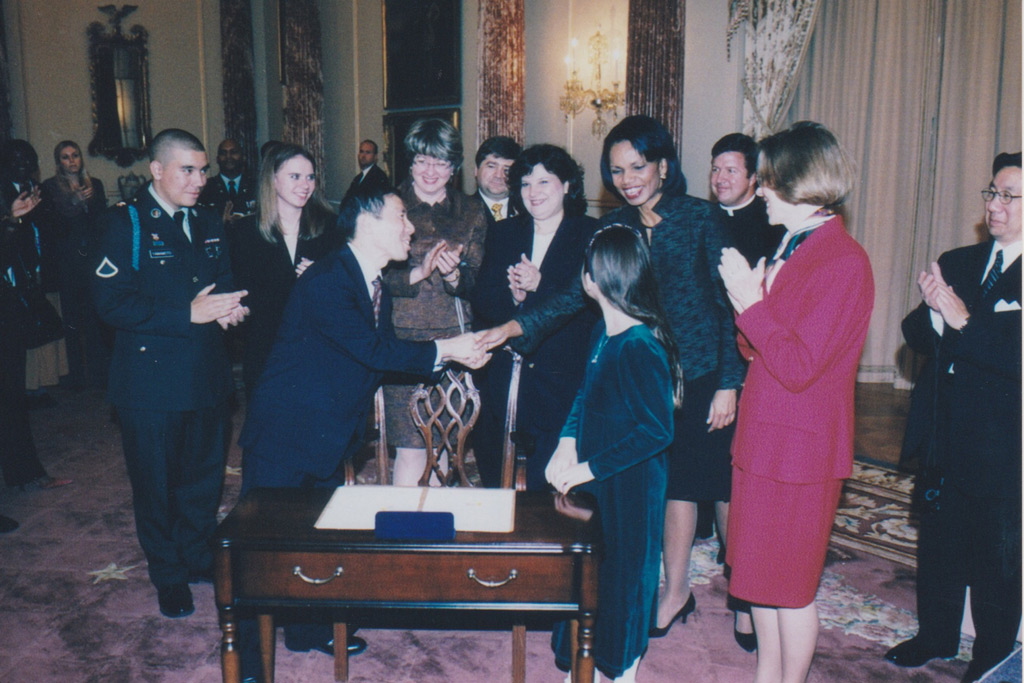
Yamamoto is one of the youngest diplomats to be promoted to the rank of Career Minister–the highest rank in the Senior Foreign Service, achieved by a small number of career diplomats. He currently (as of 2021) serves as the U.S. Ambassador to Somalia.
In addition to high-level assignments in Washington, D.C., he has served as ambassador to Ethiopia and Djibouti. Yamamoto also served tours in Asia, the Middle East, and Africa.

Throughout his diplomatic career, Yamamoto often served under difficult and dangerous circumstances. He has always sought to build bridges of understanding with foreign leaders and the host country’s people. His approach to diplomatic engagement begins with one principle: that the key to people-to-people diplomacy is first to find an element of common humanity and use it to build trust and understanding:
“We have the same aspirations for our children. From that beginning, we’re able to go into other areas and expand our commonality.”
– Ambassador Donald Yamamoto
Ambassador Yamamoto In Bagram and Mazar-e Sharif, Afghanistan
Some of the most challenging diplomatic work occurs in countries in conflict. U.S. diplomats can find themselves serving side-by-side with members of the U.S. military. They are subjected to the same dangers and must draw on their resilience to carry on their work.
Yamamoto faced this during his assignment to Afghanistan beginning in 2014.
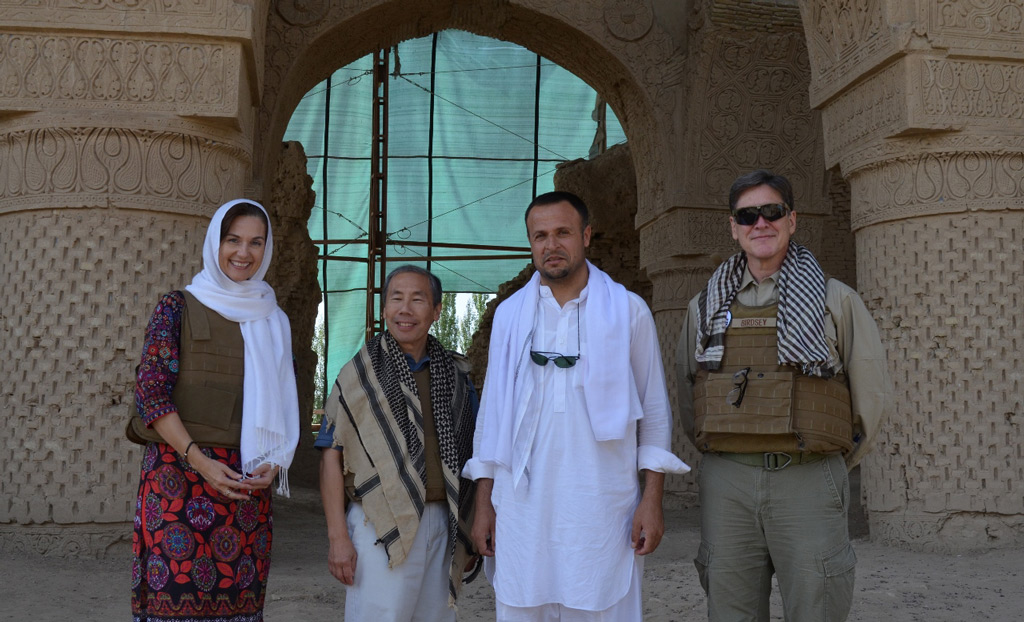
He was in Afghanistan to help with stabilization efforts and to meet with provincial Afghan governors to learn how the United States could continue to support them while the U.S. military was drawing down its troops in the country.
After such a meeting in Jalalabad, a member of the Afghan security forces attacked Yamamoto’s security team, killed a U.S. soldier, and wounded eight more.
After this attack, Yamamoto and his team were confined to Bagram Air Base but were not out of danger. He related, “Even living at Bagram Air Base, we faced 45 of 100 days in which 107 rockets were fired by insurgents at the camp. We lost one person to the attack and many nights of anxiety.”
Despite these dangers, Yamamoto encourages his children to give back to the nation. Both of his children serve in the United States military. His son served two tours in Afghanistan and one tour in Iraq.
“We have learned to overcome adversity, restrictions, and dangers to conduct our diplomatic work no matter the challenges. It is the most important work we do for the service and the people of the United States.“
– Ambassador Donald Yamamoto
Ambassador Yamamoto has a long record of expeditionary diplomacy and has earned a reputation as a diplomat of first resort to send into difficult, often dangerous, settings.

A Commitment to the Future: Mentoring in the Foreign Service
In his counsel to foreign service officers at the beginning of their careers, Yamamoto says:
“It’s not a job. Yes, it’s a profession, but it’s a mission. We’re not here to take the limelight; we just want to make a difference.
The most important skill set is leading, mentoring, and developing the staff with whom you will work to advance U.S. interests, and in turn, help them to become future leaders for the Foreign Service and carry out America’s important diplomatic missions.”
– Ambassador Donald Yamamoto
Ambassador Yamamoto has a long record of mentoring and a strong commitment to developing a diverse corps of future leaders well-equipped with the tools needed to serve the American people.
In addition to recruiting diplomats and guiding Foreign Service officers early in their careers, Ambassador Yamamoto is known for mentoring officers as they rise to senior ranks. He urges them to model a leadership style that will build successive generations of skilled, committed, and dynamic diplomats.
In characteristic fashion, he continues to stress that there should be more effort in both recruitment and promotion to achieve a diplomatic corps whose diversity mirrors American society. He says that responsibility for reaching this goal of inclusion resides in every officer who occupies a leadership position.
Ambassador Yamamoto sets a powerful example of public service, resilience, foresight, inclusiveness, courage, commitment, and empathy.
With examples like Ambassador Yamamoto, the future of the diplomatic corps looks bright.
Sources:
“Careers in Global Development: Ambassador Donald Yamamoto.” Center for Strategic and International Studies. 2017. Accessed April 20 2021. https://www.youtube.com/watch?v=ozABWOFCu3c
“Yamamoto.” U.S. Department of State. 2016. Accessed 17 April 2021 https://www.youtube.com/watch?v=KPf0DQHqWpE
Yamamoto, D. (2016, February 29). Personal Interview [Personal Interview: NMAD].
A View from the CT Foxhole: Donald Yamamoto, United States Ambassador to Somalia